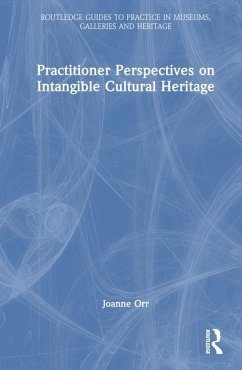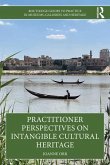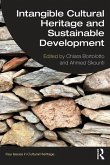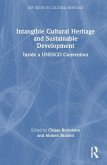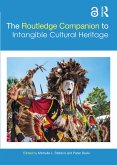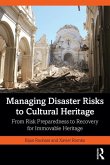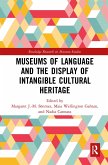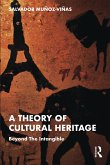Practitioner Perspectives on Intangible Cultural Heritage provides an accessible introduction to the Intangible Cultural Heritage field. Summarising the major changes that have taken place over the last two decades, the book explores ongoing debates and changes in thinking about best practice.
Drawing on the author's own experience of operationalising the UNESCO 2003 Convention for the Safeguarding of Intangible Cultural Heritage in a variety of contexts, Orr also incorporates international case studies from practitioners and provides valuable insights about best practices. Demonstrating that the top-down, state-driven hierarchy for the safeguarding of heritage is starting to shift to a model of shared ownership and values driven by communities and practitioners, the book shows that the notion of the 'expert' is also diversifying to include other forms of transmission of traditional knowledge. Orr argues that these different perspectives provide a platform to enrich understanding and knowledge and create a stronger basis for the safeguarding of heritage - both intangible and tangible. Exploring some of the policy developments that have laid the foundations for the future involvement of community and practitioners in the global discourse, the book also suggests how practitioners can expand networks and contribute to the global discourse.
Practitioner Perspectives on Intangible Cultural Heritage will appeal to museum curators and other heritage professionals, as well as students and academics engaged in the study of museums and heritage, art, and cultural policy and management.
Drawing on the author's own experience of operationalising the UNESCO 2003 Convention for the Safeguarding of Intangible Cultural Heritage in a variety of contexts, Orr also incorporates international case studies from practitioners and provides valuable insights about best practices. Demonstrating that the top-down, state-driven hierarchy for the safeguarding of heritage is starting to shift to a model of shared ownership and values driven by communities and practitioners, the book shows that the notion of the 'expert' is also diversifying to include other forms of transmission of traditional knowledge. Orr argues that these different perspectives provide a platform to enrich understanding and knowledge and create a stronger basis for the safeguarding of heritage - both intangible and tangible. Exploring some of the policy developments that have laid the foundations for the future involvement of community and practitioners in the global discourse, the book also suggests how practitioners can expand networks and contribute to the global discourse.
Practitioner Perspectives on Intangible Cultural Heritage will appeal to museum curators and other heritage professionals, as well as students and academics engaged in the study of museums and heritage, art, and cultural policy and management.

